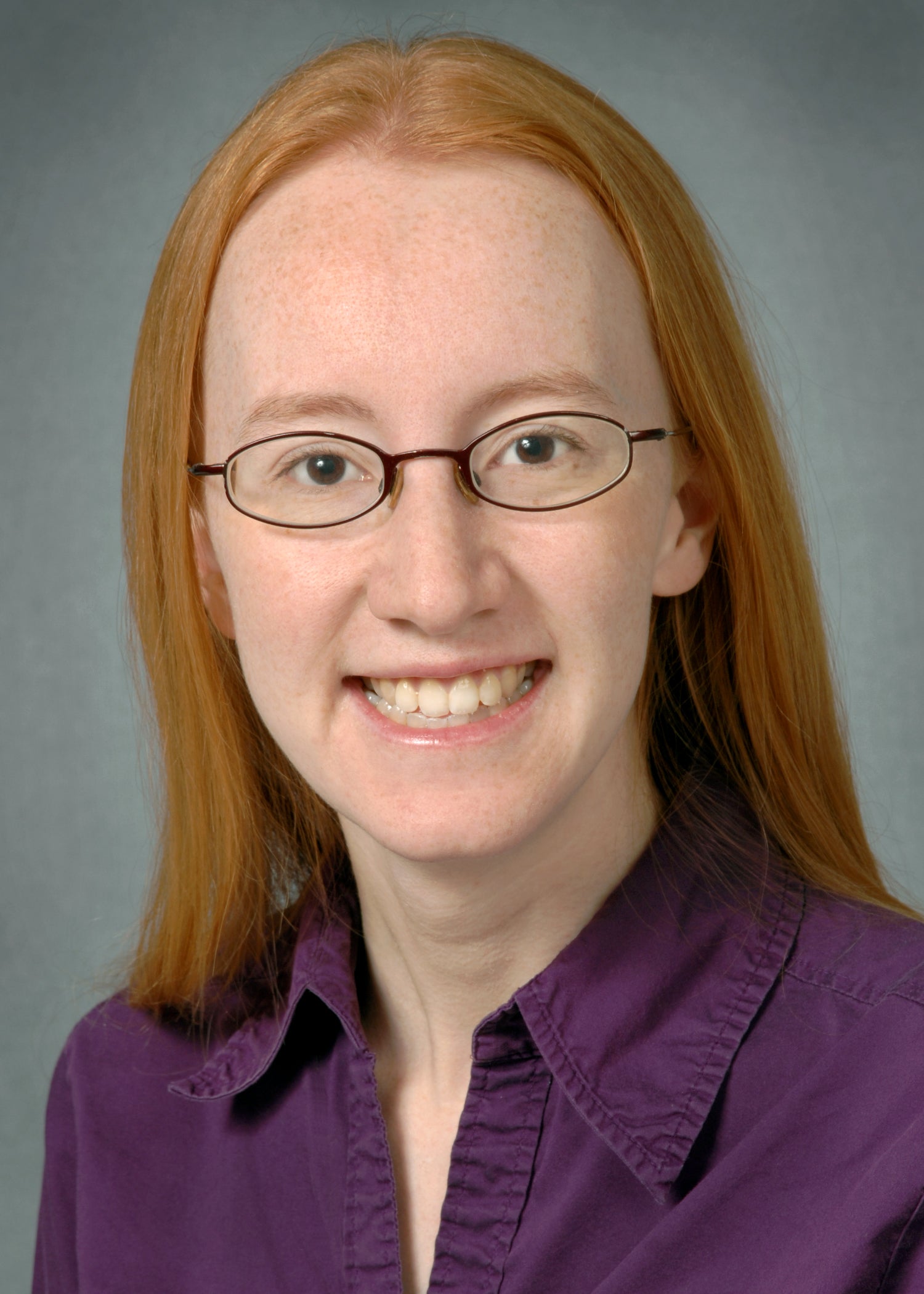
Congratulations to Diana Skrzydlo, this year’s recipient of the Robert V. Hogg award.
The Robert V. Hogg award is given each year by the Special Interest Group of the Mathematical Association of America on Statistics Education to an individual who has been teaching introductory statistics at the post-secondary level for between three and fifteen years, and “has shown both excellence and growth in teaching during that time.”
Skrzydlo is a Continuing Lecturer in the department of Statistics and Actuarial Science, the current director of the Master of Actuarial Science program, and the Math Faculty Teaching Fellow. She has been teaching at the University of Waterloo since 2007.
While Skrzydlo teaches university classes at all levels, she received the award in recognition of her work on STAT 230, an introductory statistics course that all math students are required to take. “You have a little bit of an uphill battle to get students to actually care,” she says, noting that the most challenging thing about teaching a required introductory course like STAT 230 is the “huge heterogeneity in how much people know, and huge heterogeneity in how much people care.”
Some students arrive at university comfortable with statistics, while for others the topic is almost entirely unfamiliar. As a teacher and curriculum developer, Skrzydlo reflects, she had to simultaneously “make it accessible to students for those who are new, but also provide enrichment for people who want a challenge.”
The award specifically recognizes Skrzydlo’s efforts to close an achievement gap among students taking STAT 230. For years, instructors had noticed that Computer Science students consistently achieved grades of approximately 4% less than the Faculty-wide course average. This was especially concerning, Skrzydlo says, because “probability is the basis of all machine learning – there’s so much probability in computer science.”
Skrzydlo and her colleague Cynthia Struthers proposed a solution: a separate section of STAT 230 specifically for Computer Science students. It would contain the exact same assignments and exams as the regular course, but the teaching would focus on computer science applications.
“I reached out to friends and asked them how they used statistics in their computer science jobs, and I got over a hundred examples,” she says. A pilot was approved for Spring 2015, and every subsequent term Skrzydlo refined the course further, adding examples from technology news or recent video games to help explain concepts.
The course was a resounding success: within five terms of the separate Computer Science section, the achievement gap had closed from 4% to less than 1%. “When you show them how relevant the material is to their lives and their future careers, they really respond to that,” Skrzydlo says.
She especially loves teaching introductory statistics because it allows her to share her enthusiasm for statistics early on in a student’s professional life. “It’s fun to be the spark that lights the fire of the future career of a student.”
“I would like to thank Steve Drekic for the nomination,” Skrzydlo says, “as well as my colleagues and former students for their letters of support.”
Skrzydlo has received widespread recognition throughout the University of Waterloo for her commitment to effective pedagogy. Earlier this year she won a Distinguished Teacher Award from the Centre for Teaching Excellence (link), and in 2019 she won the Faculty of Mathematics Award for Distinction in Teaching. You can visit her webpage to learn more about her work.
To learn more about the Robert V Hogg award, visit the Mathematical Association of America website.